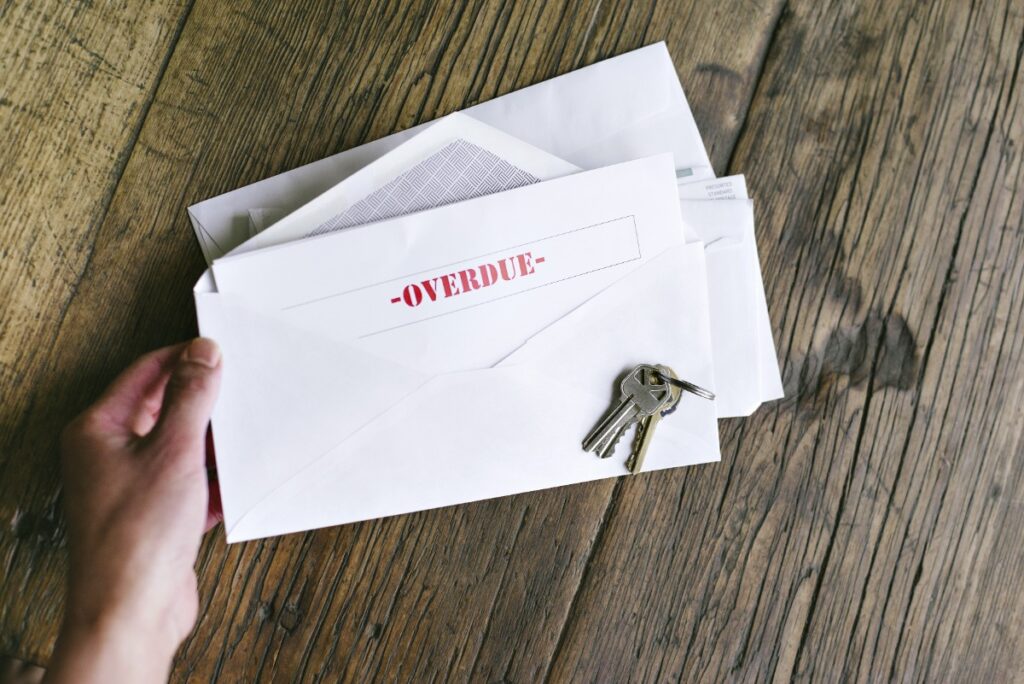- New Customer Inquiries (866) 551-4684
- Customer Service (214) 387-8068
- Make A Payment (866) 558-3328
- Client Portal
- Consumer Support

When running an apartment complex or managing multiple properties, it can be difficult to keep track of all your tenants and to make sure that they are paying on time. It gets even more complicated when you realize that some tenants are months behind on rent, or when your tenant secretly moves– saddling you with their debt. At some point, you’ll have to track tenants down to collect late rent from them. This can be stressful, not to mention devastating to your financial health. There are strategies that a landlord, like yourself, can execute to improve communication and collect rent on time.
You might want to fill vacancies as quickly as possible, so you can start making a profit. Before you take on a tenant though, it is important to conduct a strict background check to make sure that they are trustworthy. Take a look at their previous payment information, criminal record, credit report, as well as any other history that you can get your hands on. Although this will cost you time and money, it will be worth it in the long run. This process will help you avoid tenants that won’t pay their rent on time.
Once you’ve located your ideal tenant, inform them about the policies in the rental agreement. Clear communication is vital. Be direct about what you are expecting and encourage your tenants to ask questions before signing. Make sure that they understand payment information, such as the date of rent collection and preferred method of payment. Also, outline the consequences of not paying rent on time, whether that be late fees or eviction. Provide a copy to your tenant to avoid any confusion about the agreement.
The use of technology has simplified the way we track and receive payments. Instead of knocking on your tenant’s doors collecting rent, use payment apps to reduce the amount of time to get to each individual’s home or to avoid the theft of checks and actual cash. Payment apps can also keep track of all past payments and leave a digital paper trail. Don’t give your tenants an excuse for not paying rent. Payment apps are efficient systems and easily accessible.
Check-in on your tenants in between rent payments. Text them or call them to make sure everything is working properly. If you’re in the area, make time to stop by and have a friendly conversation with them. This will foster trust from your tenant and will encourage them to make timely payments. You can even offer incentives, such as saving a couple of dollars for paying early.
If you are still struggling with collecting rent from your tenants after you’ve tried all these strategies, you might want to outsource to a debt collection agency. Their main job is to collect debt, and they have all the resources to do so efficiently. A good agency follows the debt collection laws outlined in the Fair Debt Collection Practices Act closely. So you can rest assured that proper debt recovery practices are being employed. Some agencies, like Southwest Recovery Services, offer accounts receivable management, which ensures that payments are made on time.
Our team is made up of expert debt recovery agents that are dedicated to collecting late rent payments for you. SWR can create a system for monitoring payments, track down tenants that have been evicted or moved out suddenly, and hold them accountable. We can structure repayment and offer settlement options to make this happen. There is no need to worry about collecting rent and debt all on your own. Let Southwest Recovery Services do it for you.


We make it fast and easy to refer past due and delinquent accounts to our professional recovery agents. You decide the range on what you will accept on each case, and you ONLY pay a percentage of what we actually collect to resolve the case. Ready to get started, or want to learn more? Fill out this form and a dedicate account manager will call you to get started.